The healthiest nuts are rich in a diverse range of nutrients, such as unsaturated fats, proteins, fibers, and more. Consuming nuts offers numerous health benefits, including weight management, a reduced risk of heart disease, lower blood pressure, enhanced immune system support, and improved cognitive function.
Regular consumption of nuts has the potential to greatly benefit microbiome health, also known as gut health. Moreover, nuts are considered to be among the most effective foods for reducing inflammation. Additionally, they are low in carbohydrates and rich in protein, making them an advantageous snack option for individuals with type 2 diabetes.
All nuts are considered healthy due to their balanced composition of unsaturated fat, protein, and fiber, along with their rich supply of vitamins, minerals, and phytochemicals. However, the nutritional value and potential health benefits of each nut may vary based on individual preferences and specific nutrient requirements.
Pistachios offer numerous benefits for individuals following a plant-based diet. These delectable nuts are classified as complete proteins due to their content of all nine essential amino acids, making them an excellent high-protein snack.
On the other hand, almonds stand out as an exceptional source of vitamin E, a crucial nutrient for maintaining healthy vision, brain function, and skin. Additionally, a mere one or two Brazil nuts can fulfill your daily selenium requirement, making them an incredibly convenient choice.
Below, you will discover the standout nuts from a nutritional standpoint, along with detailed information about their specific health benefits. These are our ultimate recommendations for your next trail mix, baked goods, or whenever you yearn for a wholesome handful.
7 Healthiest Nuts
1. Pistachios
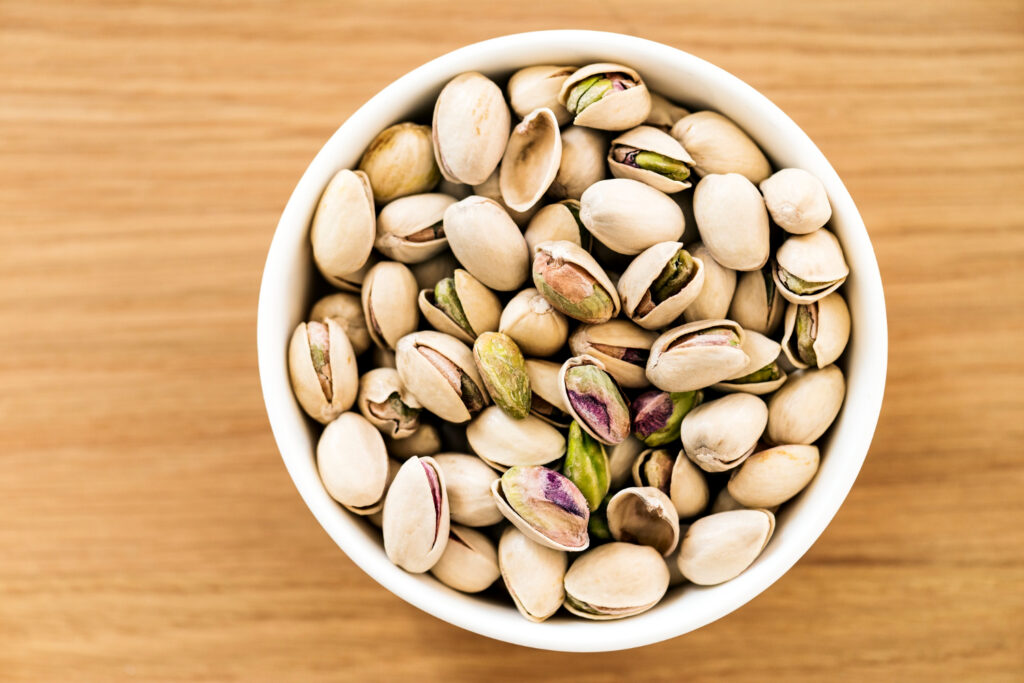
Pistachios are an excellent source of plant-based protein due to their unique ability to provide all nine essential amino acids in sufficient quantities. This makes them a complete protein, a characteristic that can be challenging for individuals following a plant-based diet to achieve.
Pistachios offer numerous advantages, one of which is their ability to serve as a rich source of melatonin, a hormone that aids in promoting restful sleep. Additionally, the vibrant green hue of pistachios is derived from a diverse range of phytochemicals, which contribute to their remarkable antioxidant and anti-inflammatory properties.
2. Walnuts
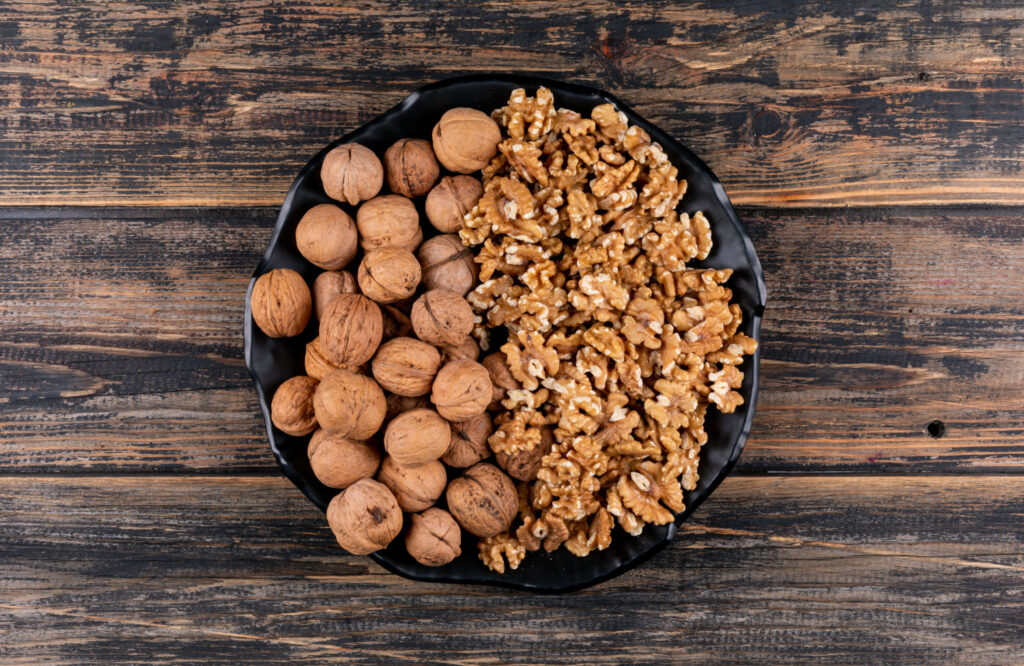
Numerous studies have revealed that walnuts possess remarkable properties that contribute to the enhancement of cognitive and mental health. These properties, namely antioxidants and anti-inflammatory agents, have been identified as potential factors in this regard. However, it is important to note that further research is required to fully comprehend the extent of these benefits.
Walnuts are an excellent source of omega-3, containing a significant amount of 2.5 grams in the form of ALA (alpha-linolenic acid). To ensure their freshness and prevent spoilage, it is recommended to store walnuts in your refrigerator or freezer. This precaution is particularly important due to the higher susceptibility of walnuts to oxidation compared to other nuts.
3. Brazil Nuts
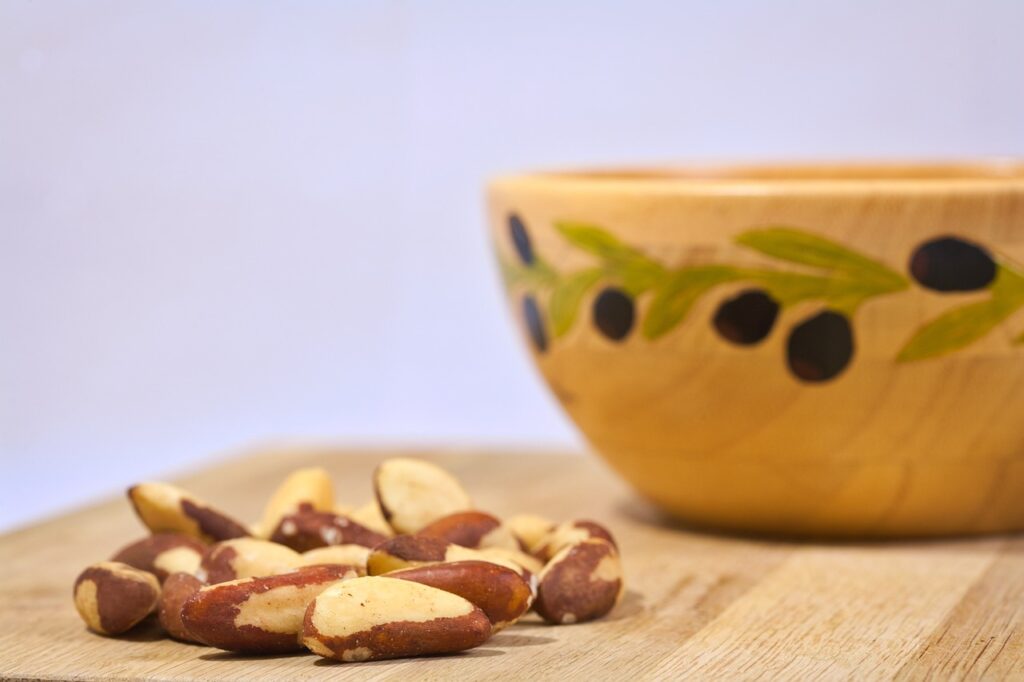
These oversized nuts provide a significant amount of selenium, a vital component that plays a crucial role in reproductive health, thyroid function, and the prevention of cell damage and infections. However, it is important to note that the recommended upper limit for selenium intake is approximately 400 mcg, while each Brazil nut contains 68–91 mcg.
To maintain a balanced diet, it is advisable to limit your nut consumption to a maximum of three per day, considering their substantial size. However, even consuming 1-2 nuts can provide ample satisfaction. These nuts are not only rich in essential micronutrients such as zinc, copper, and magnesium, but they also contain phytonutrients that function as powerful antioxidants.
4. Almonds
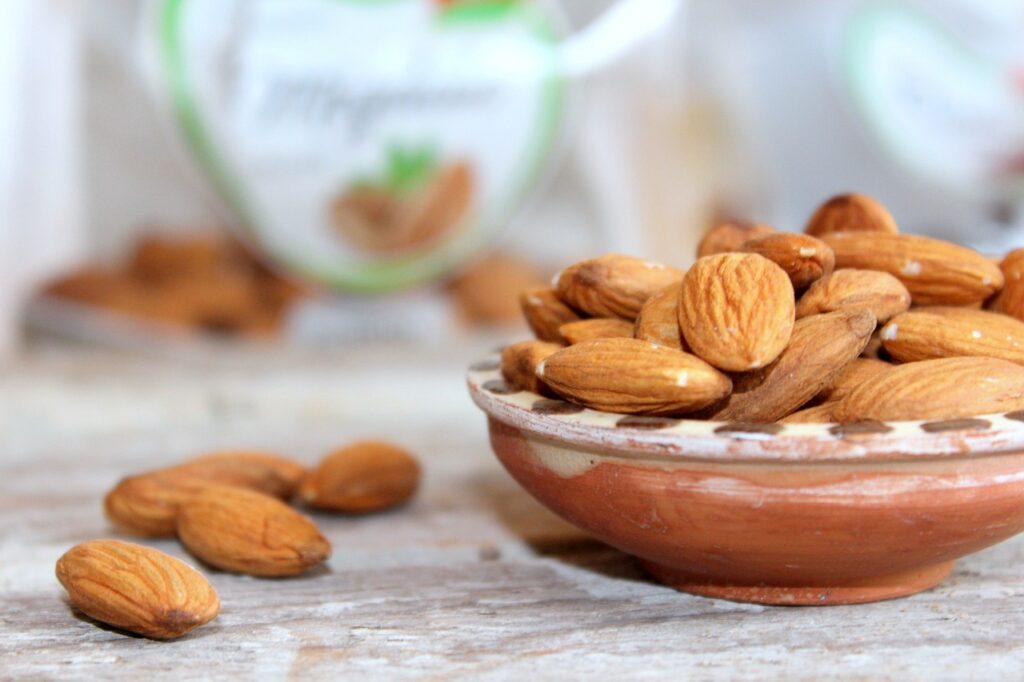
Almonds, with their abundant monounsaturated fat content, are a valuable addition to a heart-healthy diet. Moreover, they serve as an excellent source of fiber, calcium, magnesium, and vitamin E. Consuming whole almonds, including the skin, has been found to promote gut health due to their prebiotic properties. Recent research has shed light on the positive impact of whole almonds on the digestive system.
It is a bonus that many of the beneficial phytochemicals are found in the fibrous skin of almonds. Almond flour adds a delightful and nutty flavor to baked goods, while sliced and toasted almonds make an excellent choice as a salad topping. Additionally, chopped almonds serve as a wonderful addition to oatmeal.
5. Peanuts
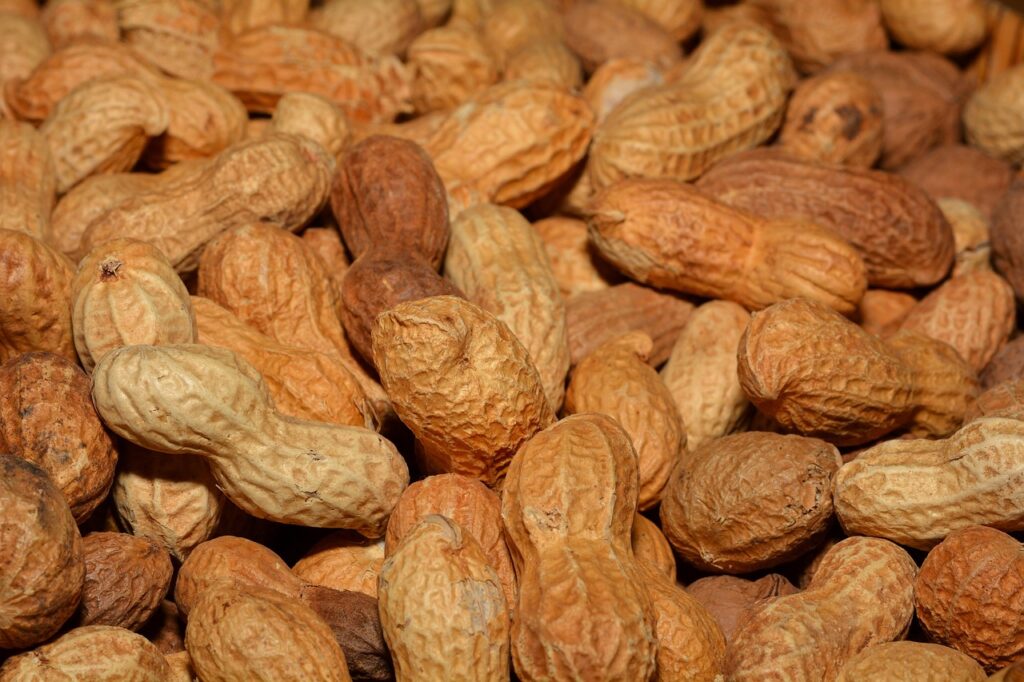
Although peanuts are technically classified as legumes, they are commonly consumed as nuts due to their similar nutritional benefits, such as being rich in healthy fats and protein. Surprisingly, peanuts actually contain more protein than the majority of nuts, with an impressive 7 grams per 1-ounce serving.
Almonds and pistachios contain approximately 6 grams of protein, while cashews provide around 5 grams, and walnuts offer 4 grams in the same serving size. For a delightful twist, sprinkle peanuts over a curry or stew, blend them into energy bites, or enhance your go-to pancake batter with a dollop of peanut butter to give it a protein boost.
You Can Also Read: 7 Fitness Habits You Need to Quit for a Healthy Body
6. Cashews
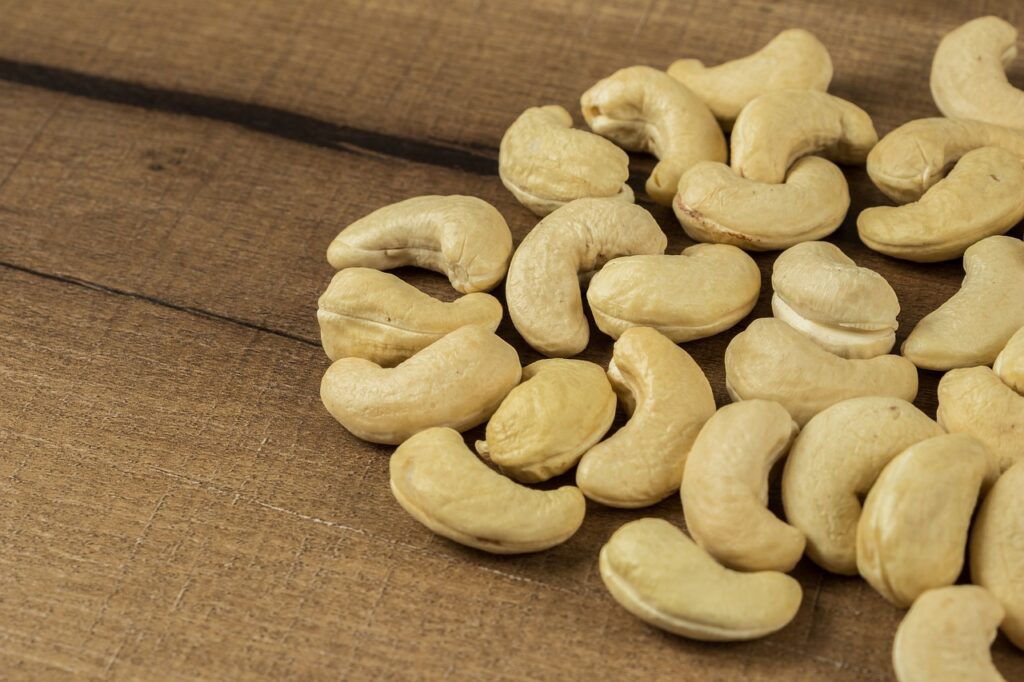
Cashews are a remarkable source of vital minerals such as zinc, copper, magnesium, and manganese. These minerals play a crucial role in various bodily functions, including energy production, immune support, and bone health. Moreover, cashews are abundant in leucine, an essential amino acid that stimulates muscle synthesis.
There are several delightful ways to enjoy these versatile vegetables. You can incorporate them into stir-fries, roast them with a pinch of salt for a delectable flavor, or boil them with water and spices, and then puree them to create a creamy base for a vegan pasta sauce. Their smooth and buttery texture offers a delightful substitute for dairy, adding a delicious twist to your dishes.
7. Hazelnuts
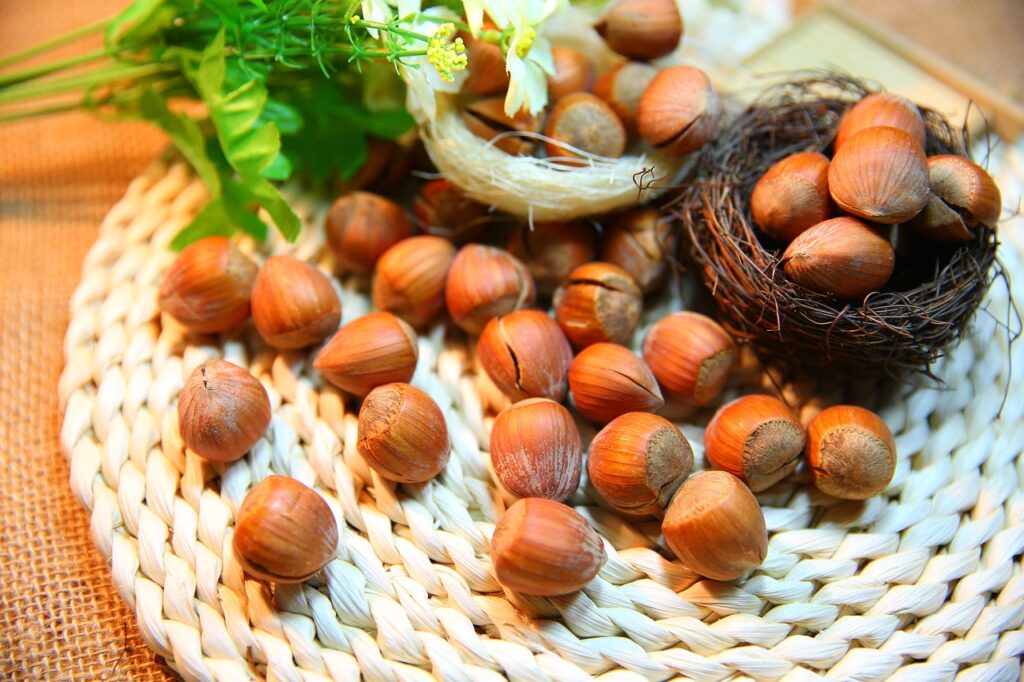
It is no wonder that hazelnuts are the perfect companion to chocolate. With their mildly sweet and incredibly rich flavor, they practically exclaim “dessert.”
The exquisite morsels are not only indulgent but also packed with antioxidants, which play a crucial role in safeguarding the body against oxidative stress. Oxidative stress refers to an imbalance between molecules within the body that can potentially give rise to a range of diseases.
Studies have demonstrated that consuming hazelnuts, particularly with their skin intact, can effectively diminish oxidative stress due to the heightened antioxidant activity found in the skin.
